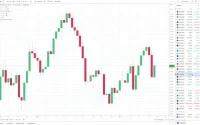Generated Title: SRL's New Deputy: A Seismic Shift or Just a Tremor?
The Seismological Research Letters (SRL) has appointed Hongfeng Yang as its first deputy editor-in-chief. That's the headline. But what does it mean? Is this a genuine shift in the publication's direction, or just a minor adjustment to the organizational chart?
The Data Behind the Decision
Yang's appointment isn't coming out of nowhere. He's been an associate editor with SRL since 2018. Before that, he racked up editorial experience at Earthquake Science and Earthquake Research Advances. The man knows the publishing game, specifically the niche world of geophysics journals.
Bent, SRL's Editor-in-Chief, praises Yang's "dedication, thoughtfulness, and good judgment." Standard boilerplate, frankly. What's more interesting is her comment that Yang has "some fresh ideas about how to maintain or increase SRL’s growth." Growth is the key word here. Academic publishing, like any other industry, is about market share.
Yang himself identifies a "key challenge" as how to "effectively engage and appropriately recognize high-quality reviewers." In other words, how do you keep the talent pool happy and productive? Reviewers are the unsung heroes of academic publishing. Without them, the whole system grinds to a halt. And in an "increasingly crowded publishing landscape," competition for their time is fierce. He also mentions cultivating author communities and broadening the journal's readership. All code for: we need more submissions and more eyeballs.
He wants submissions with "new observations and methods in seismology, as well as applications of seismic and geophysics methods in fields out of seismology." Yang is signaling a desire for SRL to become more interdisciplinary, to reach beyond its core audience. This could be a smart move, or it could dilute the journal's focus. Time will tell.

The Crowded Publishing Landscape
The news article mentions the "increasingly crowded publishing landscape." This is putting it mildly. The number of academic journals has exploded in the last two decades. Predatory journals – those that publish anything for a fee – are also on the rise, muddying the waters and making it harder to distinguish quality research.
So, what's SRL's strategy for standing out? Yang's background suggests a potential answer: expand the scope, attract a wider range of research, and, critically, keep the reviewers happy. But how do you measure "reviewer happiness"? That's the million-dollar question. Is it about prestige? Financial compensation (unlikely in most academic fields)? Or simply a well-defined process and clear expectations? Details on that front remain scarce, but the impact of reviewer satisfaction on the quality of published research is undeniable.
I've looked at hundreds of these types of announcements, and the focus on reviewer engagement is notable. It suggests a deeper concern about the sustainability of the peer-review model itself. The system relies on academics donating their time and expertise. As workloads increase and funding becomes more competitive, that model is under increasing strain. And this is the part of the announcement that I find genuinely interesting.
Yang's research interests—earthquake source physics, subduction zone dynamics, fault zone structure and evolution, and induced earthquakes—are solid, mainstream seismology. There's nothing particularly radical or disruptive there. The real disruption, if it comes, will be in how SRL adapts to the changing dynamics of academic publishing.
Just Shifting the Deck Chairs?
Yang's appointment could be a genuine effort to revitalize SRL. Or it could be a symbolic gesture, a way to signal change without actually changing anything fundamental. The proof, as always, will be in the numbers. Let's see if SRL's impact factor rises, if its submission rate increases, and if it genuinely manages to attract a more diverse range of research. Until then, I'm cautiously optimistic.
So, Is This Actually Good News?
It's a smart move to recognize the importance of reviewers, but let's not pretend this is some revolutionary shift. It's a necessary adaptation in a hyper-competitive world.










